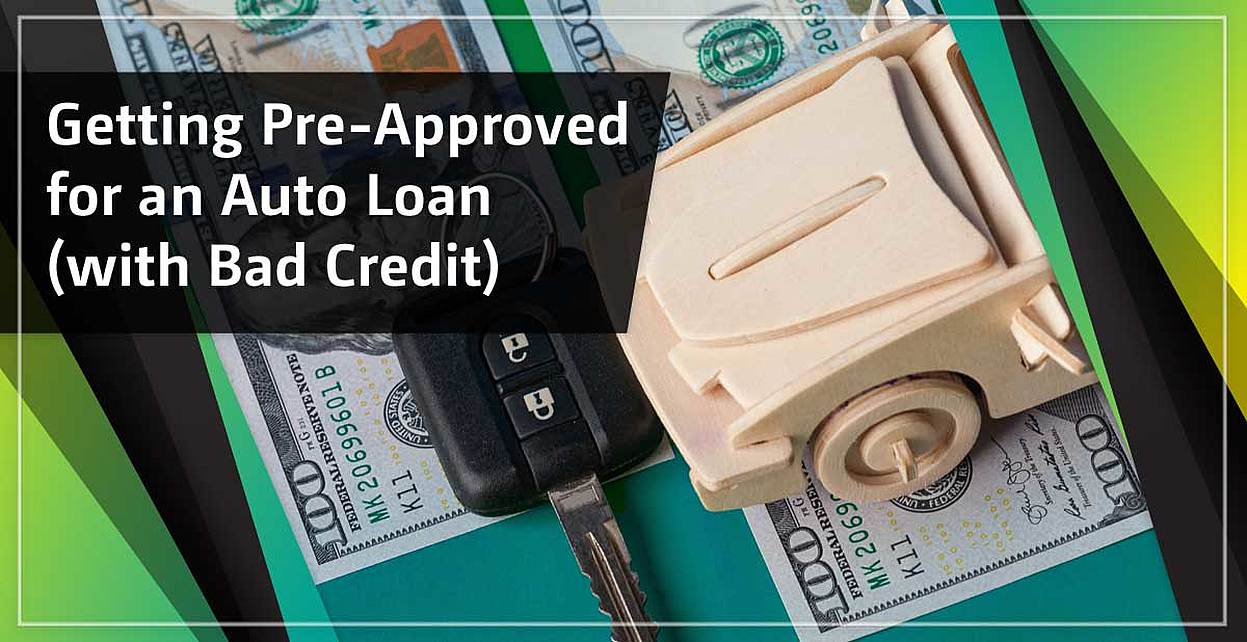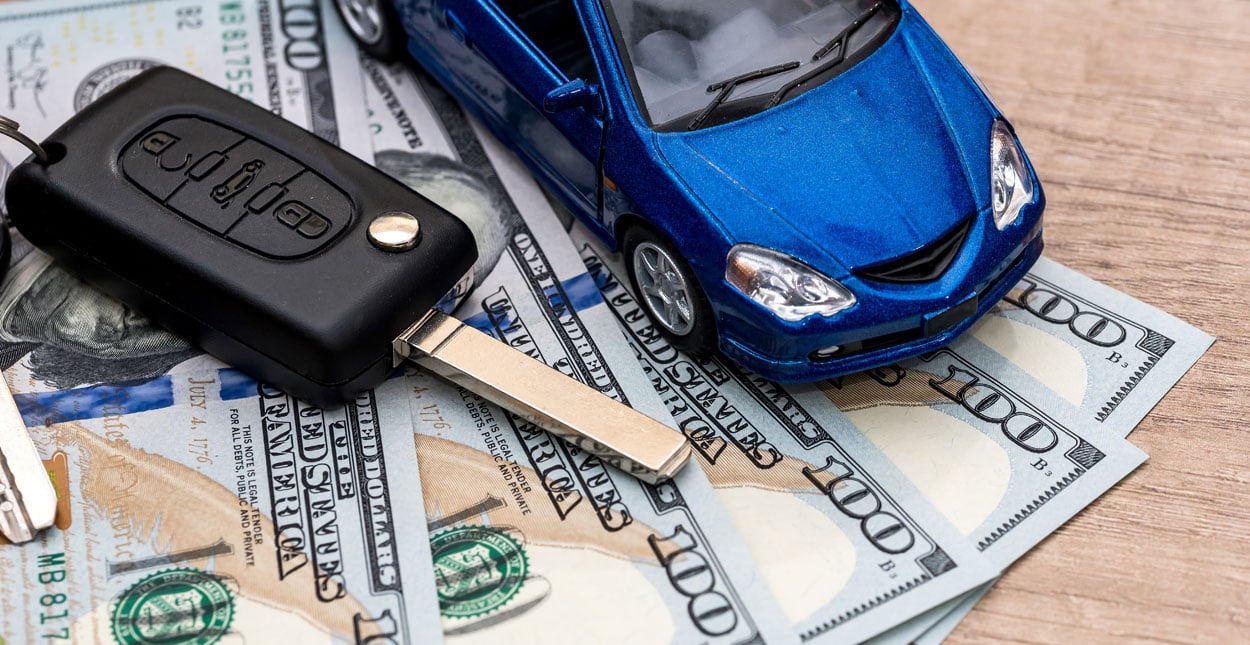
How to Get a Car Loan With Bad Credit
Written: Editor | July 3, 2023

Assessing your financial situation
Before embarking on the journey of getting a car loan with bad credit, it's important to assess your financial situation. By understanding where you stand financially, you can make informed decisions and increase your chances of securing a loan.
Evaluating your current income and expenses
Start by evaluating your current income and expenses. Calculate your monthly income after taxes and deduct all your necessary expenses, such as rent, utilities, groceries, and insurance. This will give you a clear picture of how much money you have available to allocate towards a car loan repayment.
Determining a realistic budget for a car loan
After evaluating your income and expenses, you can determine a realistic budget for a car loan. Consider your monthly budget and decide how much you can afford to allocate towards a car payment. Remember to factor in other costs associated with owning a car, such as insurance, fuel, and maintenance.
It's important to be realistic about your budget and ensure that the monthly car loan payment fits comfortably within your financial means. Stretching yourself too thin could lead to financial strain and potentially impact your ability to repay the loan.
Calculating the ideal down payment amount
Having a bad credit score often means higher interest rates and less favorable loan terms. One way to counterbalance this is by making a larger down payment. By increasing the down payment amount, you can reduce the overall loan amount and potentially negotiate better loan terms.
Calculate how much you can save as a down payment and aim for at least 10-20% of the car's purchase price. This shows lenders that you are committed to the loan and decreases their risk, increasing your chances of approval.
In conclusion, assessing your financial situation is crucial when seeking a car loan with bad credit. By evaluating your income and expenses, determining a realistic budget, and calculating an ideal down payment amount, you can increase your chances of obtaining a car loan and take steps towards improving your financial situation.

Exploring loan options for bad credit
Are you in the market for a new car but worried about your bad credit? Don't let a low credit score discourage you from getting the car you need. There are still options available for individuals with bad credit to secure a car loan.
Subprime lenders and their requirements
Subprime lenders specialize in working with borrowers who have less than perfect credit scores. These lenders have specific requirements that may differ from traditional lenders. While subprime loans often come with higher interest rates, they can provide an opportunity to finance a vehicle and improve your credit over time.
To qualify for a loan from a subprime lender, you'll typically need proof of income, a valid driver's license, and a down payment. Each lender may have different requirements, so it's important to shop around and compare offers to find the best fit for your needs.
Secured loan options for better approval chances
If you have bad credit, securing a loan with collateral can improve your chances of approval. Secured loans use an asset, such as your car or home, as collateral to secure the loan. This reduces the risk for the lender, making them more likely to approve your loan application.
While secured loans may require a higher down payment and come with the risk of losing your collateral if you default on the loan, they can offer a viable option for those with bad credit looking to finance a car.
Co-signers and their role in obtaining a car loan
Having a co-signer with good credit can significantly increase your chances of getting a car loan with bad credit. A co-signer is someone who agrees to take responsibility for the loan if you are unable to make the payments. Their good credit history serves as a reassurance to the lender and can help secure a loan with better terms and rates.
However, it's important to recognize the responsibility that comes with having a co-signer. If you default on the loan, it can negatively impact their credit score and strain your relationship. Make sure you are committed to making timely payments before involving a co-signer.
In conclusion, while obtaining a car loan with bad credit may be more challenging, it is not impossible. Exploring subprime lenders, secured loan options, and considering a co-signer can help increase your chances of getting approved for a car loan and driving off in the car you need.

Improving your chances of approval
Working on credit repair and debt reduction
Trying to get a car loan with bad credit can be challenging, but it's not impossible. The first step is to focus on improving your credit score and reducing your debt as much as possible. This will help demonstrate to potential lenders that you are actively working towards improving your financial situation.
Some strategies to consider include:
-
Paying bills on time: Late payments can have a negative impact on your credit score. Make sure to pay all your bills, including credit card payments and utility bills, on time.
-
Paying down debt: Reducing your existing debt can help improve your credit utilization ratio, which is an important factor in determining your creditworthiness.
-
Disputing errors on your credit report: Review your credit report for any errors or inaccuracies and dispute them with the credit bureaus. Correcting these errors can have a positive impact on your credit score.
Gathering necessary documents and paperwork
To increase your chances of getting approved for a car loan, it's important to have all the necessary documents and paperwork ready. This includes:
-
Proof of income: Provide documentation such as pay stubs or tax returns to demonstrate your ability to repay the loan.
-
Proof of residence: Lenders may require proof of your current address, such as utility bills or a lease agreement.
-
Proof of insurance: Most lenders will require proof of insurance before approving a car loan.
Finding a reputable dealership or lender
Lastly, it's important to find a reputable dealership or lender that specializes in working with individuals with bad credit. They will have a better understanding of your situation and may have specific loan options available for you.
Here are some tips for finding a reputable dealership or lender:
-
Research: Look for dealerships or lenders that have positive reviews and a good reputation.
-
Ask for recommendations: Reach out to friends, family, or colleagues who may have had a similar experience and ask for their recommendations.
-
Negotiate: Don't be afraid to negotiate the terms of the loan. While you may not be able to secure the best interest rate, negotiating can still help you get a more favorable deal.
Remember, getting a car loan with bad credit may require some extra effort and patience, but with the right strategies and determination, it can be done.

Applying for a car loan with bad credit
Preparing a strong application package
Applying for a car loan with bad credit may seem like a daunting task, but with the right preparation, it is possible to secure financing. Here are some tips to help you put together a strong application package:
-
Gather your financial documents: Lenders will want to see proof of income, employment history, and other financial information. Collect documents such as pay stubs, tax returns, and bank statements to demonstrate your financial stability.
-
Include a reference letter: If you have a reference who can vouch for your character and financial responsibility, include a letter from them. This can help lenders see you in a positive light despite your bad credit.
-
Offer a higher down payment: A larger down payment can offset the risk associated with your bad credit. If possible, try to save up for a higher percentage down payment to increase your chances of loan approval.
Negotiating terms and interest rates
While it may be more challenging to negotiate favorable terms and interest rates with bad credit, it is not impossible. Here are a few strategies you can employ:
-
Shop around: Obtain loan quotes from multiple lenders to compare terms and interest rates. This will give you a better idea of what is available and enable you to negotiate from a position of knowledge.
-
Consider a co-signer: If you have a family member or friend with good credit, ask them to co-sign the loan. This can improve your chances of securing better terms and rates.
-
Show stability: Emphasize any stability in your life, such as steady employment or a long-term residence. This can help mitigate the concerns lenders may have about your credit history.
Understanding loan terms and conditions
Before signing any loan agreement, it is crucial to fully understand the terms and conditions. Here are a few key factors to look out for:
-
Interest rate: The interest rate will determine how much you pay in interest over the life of the loan. Make sure it is competitive and within your budget.
-
Loan term: The loan term refers to the length of time you have to repay the loan. Consider the monthly payments and choose a term that works for you.
-
Early repayment penalties: Some loans come with penalties for early repayment. Ensure you understand if there are any additional costs associated with paying off the loan early.
By preparing a strong application package, negotiating terms and interest rates, and understanding loan terms and conditions, you can increase your chances of getting a car loan with bad credit. Remember to shop around and compare multiple options to find the best fit for your financial situation.

Conclusion
Despite a bad credit history, it is still possible to get a car loan. By taking advantage of available opportunities, maintaining financial discipline, and understanding the process, individuals can overcome their credit challenges and purchase the car they need.
Taking advantage of car loan opportunities despite bad credit
-
Explore lenders specializing in bad credit: Some lenders are more lenient when it comes to credit scores. Research and approach these lenders to increase your chances of approval.
-
Consider a co-signer: Having a co-signer with good credit can improve your chances of securing a car loan. However, ensure that both parties are aware of the responsibilities and potential risks involved.
-
Save for a larger down payment: A large down payment can help offset the risk associated with bad credit. Lenders may view this as a positive factor when assessing your loan application.
Maintaining financial discipline for future credit improvement
-
Pay bills on time: Consistently making timely payments can help improve your credit score over time.
-
Reduce outstanding debt: Start by paying off high-interest debts and then work towards reducing other outstanding balances. This can positively impact your credit utilization ratio, which is an important factor in credit scoring.
-
Monitor your credit report: Regularly review your credit report for inaccuracies or fraudulent activities. Disputing errors and staying vigilant can help protect your credit standing.
Frequently Asked Questions about car loans with bad credit
-
Will my interest rate be higher with bad credit? It's likely that individuals with bad credit will be offered higher interest rates, as lenders see them as higher-risk borrowers.
-
Is it possible to refinance my car loan in the future? If your credit improves and you make timely payments on your car loan, it may be possible to refinance in the future at a lower interest rate.
-
Can I negotiate the terms of a car loan with bad credit? While it may be more challenging, it is still possible to negotiate the terms of a car loan with bad credit. Be prepared to offer a larger down payment or provide other proof of financial stability to improve your chances.



